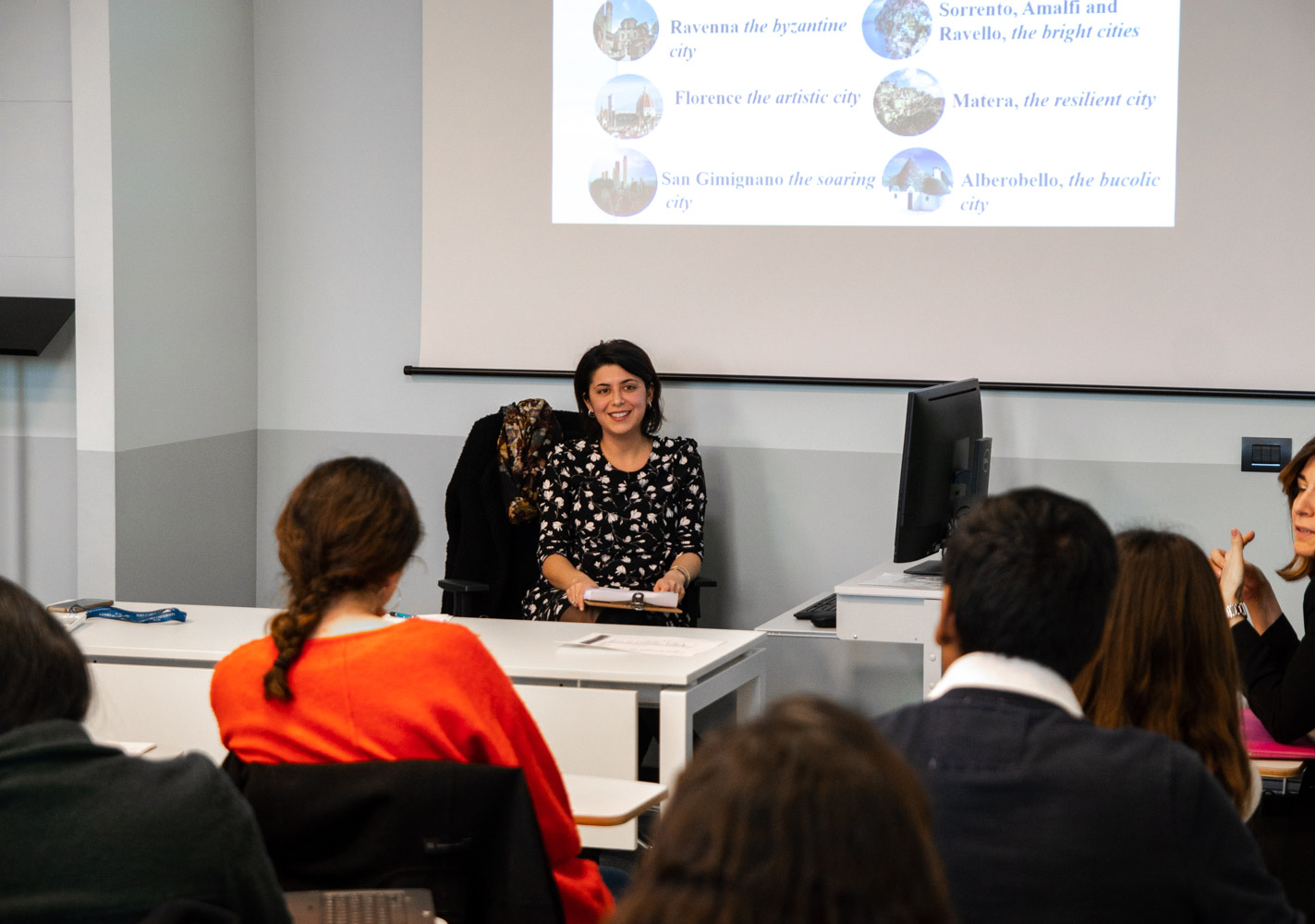"Lo voglio:" Martina Vacca on Wedding Tourism in Italy
Did you know that Tuscany is the Italian region of choice for international couples to get married? This is probably due to its beautiful landscapes and rich artistic and historical heritage.

Martina Vacca
Martina Vacca, journalist and author of the book Dirsi sì nelle città UNESCO (Saying I Do in UNESCO Cities), was invited for a lecture on wedding tourism in Italy in the context of Professor Salvatore’s course “Made In Italy: The Italian Business Environment” on February 11.
The book explores two growing sectors in Italy: wedding and cultural tourism. Divided into 9 chapters, each corresponding to an Italian city, the book provides information on the main nationalities of couples who decide to get married in Italy as well as the number of weddings and civil unions that occurred in a one-year period. For each city, the author also indicates some of the most beautiful locations to get married, as well as the average costs for marriages. The costs differ from Italians to EU and extra EU citizens. The book aims to give entrepreneurial ideas to policy-makers who work in the tourism and wedding industries.
Vacca explained that getting married in Italy today is a very popular choice for foreign couples mainly because of Italy’s cultural and artistic heritage, breathtaking landscapes, and world-renowned cuisine. She looked at the strengths, weaknesses, and opportunities for wedding tourism in the country. On the one hand, the main advantage of getting married in Italy today is that couples can choose from a large variety of Italian UNESCO sites (54 in total) and the fact that municipal wedding locations are much cheaper than villas and other locations abroad. In other words, more and more couples might want to choose Italy to say “I do” without spending a fortune.
Some of the weaknesses of wedding tourism are, however, that weddings might hinder regular tourism, and that couples might be given restrictions for the decoration of wedding venues. While wedding tourism represents a growing opportunity for the Italian economy, this must not compromise the preservation of great Italian works of art. If this condition is respected, Italy will become famous not only for its artistic, historical, and gastronomical value but also for its flourishing wedding tourism.





